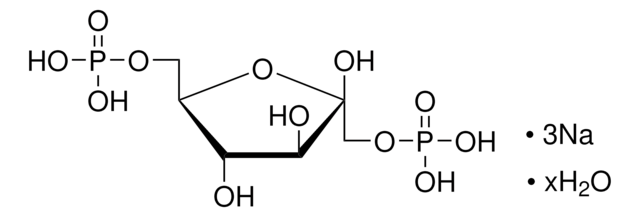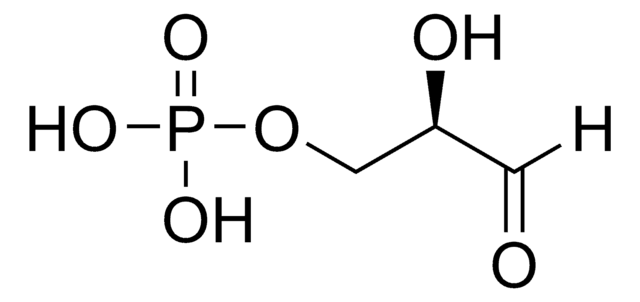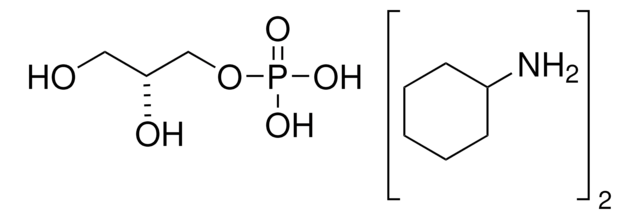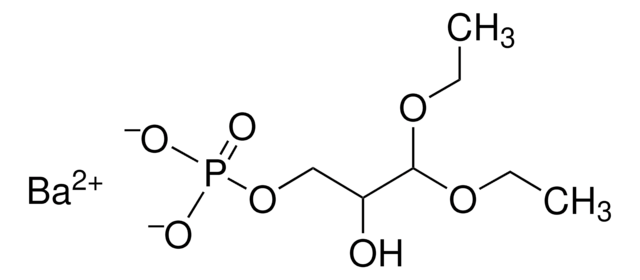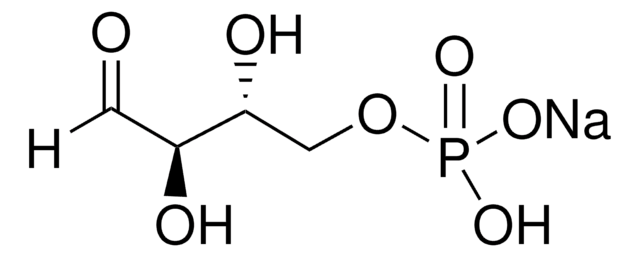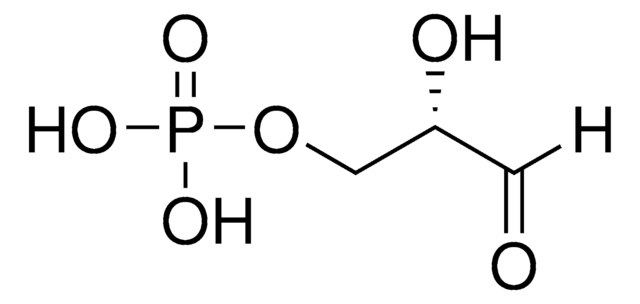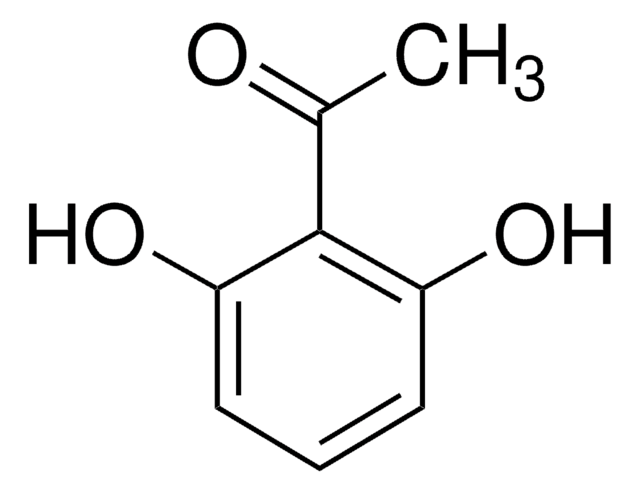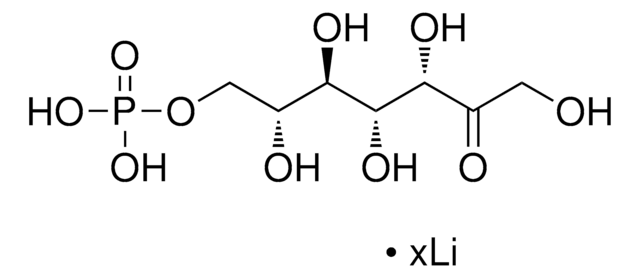D7137
Dihydroxyacetone phosphate dilithium salt
≥93% dry basis (enzymatic)
Synonym(s):
1,3-Dihydroxy-2-propanone 1-phosphate dilithium salt, 1-Hydroxy-3-(phosphonooxy)-2-propanone dilithium salt, DHAP
About This Item
Recommended Products
biological source
bovine (casein)
Quality Level
Assay
≥93% dry basis (enzymatic)
form
powder
impurities
~0.2 mol % D-glyceraldehyde 3-phosphate
color
white
solubility
soluble 50mg plus 1ml of H2O, clear, colorless to faintly yellow
anion traces
phosphate (PO43-): ~5 mol %
cation traces
Li: 5.5-8.0% (dry basis)
storage temp.
−20°C
SMILES string
[Li+].[Li+].OCC(=O)COP([O-])([O-])=O
InChI
1S/C3H7O6P.2Li/c4-1-3(5)2-9-10(6,7)8;;/h4H,1-2H2,(H2,6,7,8);;/q;2*+1/p-2
InChI key
QWIKESRFRWLYIA-UHFFFAOYSA-L
Looking for similar products? Visit Product Comparison Guide
Application
Biochem/physiol Actions
Caution
Preparation Note
Other Notes
Storage Class Code
11 - Combustible Solids
WGK
WGK 3
Flash Point(F)
Not applicable
Flash Point(C)
Not applicable
Personal Protective Equipment
Regulatory Listings
Regulatory Listings are mainly provided for chemical products. Only limited information can be provided here for non-chemical products. No entry means none of the components are listed. It is the user’s obligation to ensure the safe and legal use of the product.
JAN Code
D7137-BULK:
D7137-25MG:
D7137-5MG:
D7137-250MG:
D7137-VAR:
D7137-100MG:
D7137-10MG-KC:
D7137-10MG:
Choose from one of the most recent versions:
Already Own This Product?
Find documentation for the products that you have recently purchased in the Document Library.
Customers Also Viewed
Articles
Learn about monosaccharide biosynthesis and the metabolism of monosaccharides. A unit of a carbohydrate and the simplest form of a sugar, a monosaccharide cannot be hydrolyzed into a simpler compound.
We presents an article about the Warburg effect, and how it is the enhanced conversion of glucose to lactate observed in tumor cells, even in the presence of normal levels of oxygen. Otto Heinrich Warburg demonstrated in 1924 that cancer cells show an increased dependence on glycolysis to meet their energy needs, regardless of whether they were well-oxygenated or not.
Our team of scientists has experience in all areas of research including Life Science, Material Science, Chemical Synthesis, Chromatography, Analytical and many others.
Contact Technical Service